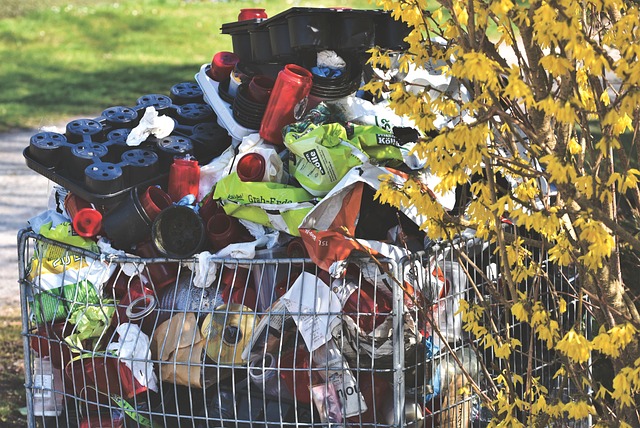In Southeast Asia, a region responsible for a staggering 25% of global waste, a pressing issue emerges: the need for innovative climate tech solutions to manage and prevent the escalating waste problem. While climate tech start-ups are eager to drive change, they face challenges such as limited support, exposure, and growth platforms. This article explores the urgent need for better waste management solutions in the region and how technology and innovation can be pivotal in addressing this environmental crisis.

Southeast Asia, already accounting for a fifth of the world's rubbish, is on track to generate over 300 million tonnes of waste annually by 2030. The increasing urbanization, economic growth, and a population surge of nearly 25% over the last two decades have fueled this alarming trend. With consumer preferences leaning towards e-commerce and convenience, the rise in waste generation is further exacerbated.
The consequences of this surge in waste are dire, leading to environmental degradation. Shannon Lung, head of UOB FinLab, emphasizes the urgency of finding better waste management solutions before it's too late. The repercussions of excess waste, including ocean pollution and overflowing landfills, underscore the critical need for action.
UOB FinLab, an innovation accelerator established by Singapore's United Overseas Bank, recognizes the gravity of the situation. More than 80% of ocean-bound rubbish originates from the ASEAN region, highlighting the inadequacy of waste disposal, collection, treatment, and recycling infrastructure. The region's lack of effective waste management practices results in 90% of waste being either dumped or burned.
Singapore, a prime example, generates nearly a million tonnes of plastic waste annually. While governmental initiatives like Singapore's "reduce, reuse, recycle" (3Rs) strive to conserve landfill space, the current mechanisms fall short. Collaborative efforts on a larger scale are imperative to successfully reduce waste, according to Lung.
Innovation emerges as a beacon of hope in tackling Southeast Asia's waste issue. Lung underscores the potential of technology and innovation in expediting change, citing examples such as waste-to-energy plants in Singapore, Thailand, and Indonesia. Start-ups like Octopus in Indonesia utilize tech solutions for reverse logistics, collecting post-consumer products for recycling into raw materials.
To handle plastic waste effectively, advanced solutions like "smart bins" incorporating IoT and artificial intelligence are being deployed in Singapore. These technologies, Lung notes, are crucial in preventing plastic waste leakage and environmental pollution caused by microplastics.
Despite Southeast Asia being home to over 7,000 digital start-ups, only a fraction, less than 100, are climate tech start-ups. Prashant Singh, CEO of Blue Planet Environmental Solutions, sees the region's waste challenges as a significant opportunity for start-ups. He emphasizes the advantage of locally developed solutions tailored to the unique waste conditions, demographics, and climate of the region.
However, climate tech start-ups face hurdles in scaling their solutions, including funding constraints, regulatory obstacles, and a lack of mentorship. Recognizing this, accelerator programs like UOB FinLab's GreenTech Accelerator play a crucial role. These initiatives provide funding, link start-ups with businesses, and offer a test-bed for solutions.
Since its 2022 launch, UOB FinLab's GreenTech Accelerator has supported start-ups like HydroNeo, REDEX, TAVA, and AlterPacks. These companies focus on smart farm management systems, renewable energy certificates, bioplastic products, and converting food waste into sustainable takeaway boxes, respectively.
While accelerator programs offer a lifeline to climate tech start-ups, Lung emphasizes the need for governments to support these companies. Objective discussions on refining regulations and educating stakeholders can create an environment conducive to growth.
Prashant Singh expresses optimism about the future, citing the engagement of young start-ups in innovative solutions for the environment. He believes their enthusiasm and commitment will drive the much-needed change in Southeast Asia's waste landscape. As these start-ups continue to play a vital role, long-term support is crucial for achieving tangible results for the region and the planet at large.
